How to Use Virtual Labs to Teach Science Concepts"
27 January 2025
The age of digital transformation has ushered in a slew of technological tools that are reshaping education as we know it. One of the most thrilling innovations, especially in the world of science education, is the rise of virtual labs. Virtual labs are changing the way we teach and learn science concepts, allowing students to conduct experiments, visualize complex processes, and understand abstract theories in a risk-free, engaging environment. But how exactly can educators leverage these tools to enhance science learning?
In this article, we’ll dive into how to use virtual labs to teach science concepts, discussing why they work, how they can be integrated into the curriculum, and what benefits they bring to both teachers and students. So, buckle up, grab your digital goggles, and let’s get started!

What Are Virtual Labs?
Let’s start with the basics: what exactly is a virtual lab? A virtual lab is an online simulation of a physical science experiment. It mimics real-life laboratory environments, allowing students to perform experiments and observe results without needing physical equipment or materials. Imagine being able to conduct a chemistry experiment or explore the anatomy of a frog from the comfort of your home, using just a computer or tablet. Sounds like something out of a sci-fi movie, right? But it's real, and it's revolutionizing science education.Virtual labs can cover a wide range of subjects like biology, chemistry, physics, and even engineering. These labs are highly interactive, providing students with hands-on experience while also offering detailed visualizations that make understanding complex concepts a breeze.
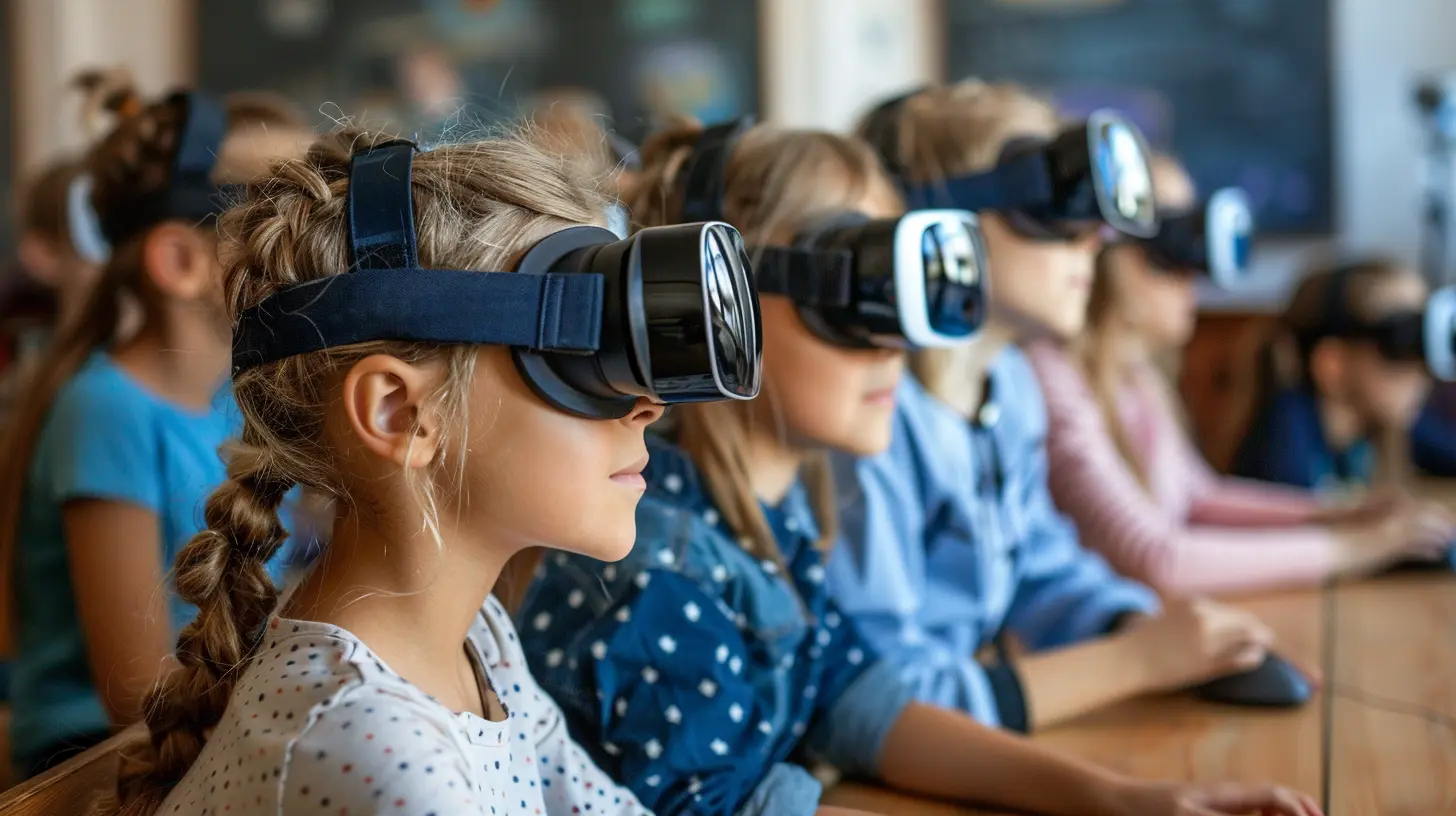
Why Use Virtual Labs in Science Education?
Here's a question: Why should educators bother with virtual labs when physical labs have worked for decades? Well, think of virtual labs as the modern, tech-savvy sibling of traditional labs. They bring a whole new level of flexibility, accessibility, and engagement to the table. Let’s break down why using virtual labs can be a game-changer for teaching science concepts.1. Accessibility and Inclusivity
One of the most significant advantages of virtual labs is that they make science education more accessible. Not every school has state-of-the-art lab equipment, and budget constraints often limit the resources available to students. Virtual labs can fill this gap by offering a cost-effective solution that provides students access to high-quality experiments without the need for physical materials.Additionally, virtual labs can be used anywhere and anytime, as long as students have a device and internet connection. This is particularly beneficial for distance learning or homeschooling environments. It’s like having a portable science lab right in your backpack!
2. Safety First
Let’s be honest—some science experiments can be pretty dangerous. Working with chemicals or high-voltage electricity can be risky, especially for younger students. Virtual labs eliminate this danger by providing a safe space for students to explore, experiment, and even fail without any real-world consequences.Want to see what happens when you mix volatile substances? In a virtual lab, you can do just that without risking an explosion. It's a win-win situation: students get to explore their curiosity, and teachers don’t have to worry about safety regulations.
3. Immediate Feedback and Self-Paced Learning
Virtual labs often come with built-in feedback mechanisms. Students can get instant results and explanations, helping them understand what went right (or wrong) with their experiment. This immediate feedback loop is crucial for reinforcing learning and helping students grasp science concepts more effectively.Moreover, virtual labs allow for self-paced learning. Students can repeat experiments as many times as they want until they feel confident in their understanding, which is something that’s not always feasible in a traditional lab setting due to time and resource constraints.
4. Visualization of Abstract Concepts
Some science concepts are just plain hard to visualize. How do you show the movement of atoms? What about molecular bonding or the behavior of electrons in an electric field? Virtual labs come equipped with interactive simulations that provide detailed visualizations of these abstract ideas.Instead of relying on 2D textbook diagrams, students can manipulate 3D models, rotate them, and see the process in action. This hands-on interaction helps solidify their understanding of abstract scientific theories and makes learning more engaging.
How to Incorporate Virtual Labs into Your Science Curriculum
So, you’re sold on the idea of virtual labs, but how do you weave them into your existing curriculum? Here are some practical steps you can follow to make the most of these powerful tools.1. Start with Simple Experiments
Don’t dive into the deep end right away. Start by introducing virtual labs with simple experiments that align with your lesson objectives. For example, if you’re teaching basic chemistry, you could use a virtual lab to demonstrate the concept of pH levels or the reaction between acids and bases. These experiments are straightforward, making them an excellent starting point for students who are new to virtual labs.2. Align Virtual Labs with Learning Objectives
Always ensure that the virtual experiments you choose align with the learning objectives of your course. If you’re teaching a unit on Newtonian physics, for instance, use a virtual lab that simulates forces, motion, and energy transfer. This way, the virtual lab becomes an extension of your lesson, reinforcing what students are learning in real-time.3. Encourage Exploration
Virtual labs are perfect for fostering a sense of exploration and creative thinking. Encourage students to go beyond the basic requirements of the experiment. For example, if they're learning about chemical reactions, ask them to test what happens if they change the quantities of the reactants or introduce a new variable. By promoting exploration, you’ll encourage critical thinking and a deeper understanding of the concepts.4. Use Virtual Labs as a Supplement, Not a Replacement
While virtual labs are amazing, they shouldn’t completely replace traditional labs. There’s still something irreplaceable about physically handling equipment, measuring chemicals, and conducting hands-on experiments. Use virtual labs as a supplement to enhance learning, not as a full substitute. For example, you can use a virtual lab for the more dangerous or complex experiments while relying on physical labs for simpler, hands-on tasks.5. Assign Virtual Labs for Homework or Flipped Learning
Virtual labs can also be used as part of a flipped classroom model. Assign a virtual experiment as homework before the actual lesson. This way, students can come to class with a hands-on understanding of the concept, allowing for deeper discussions and collaborative problem-solving during class time.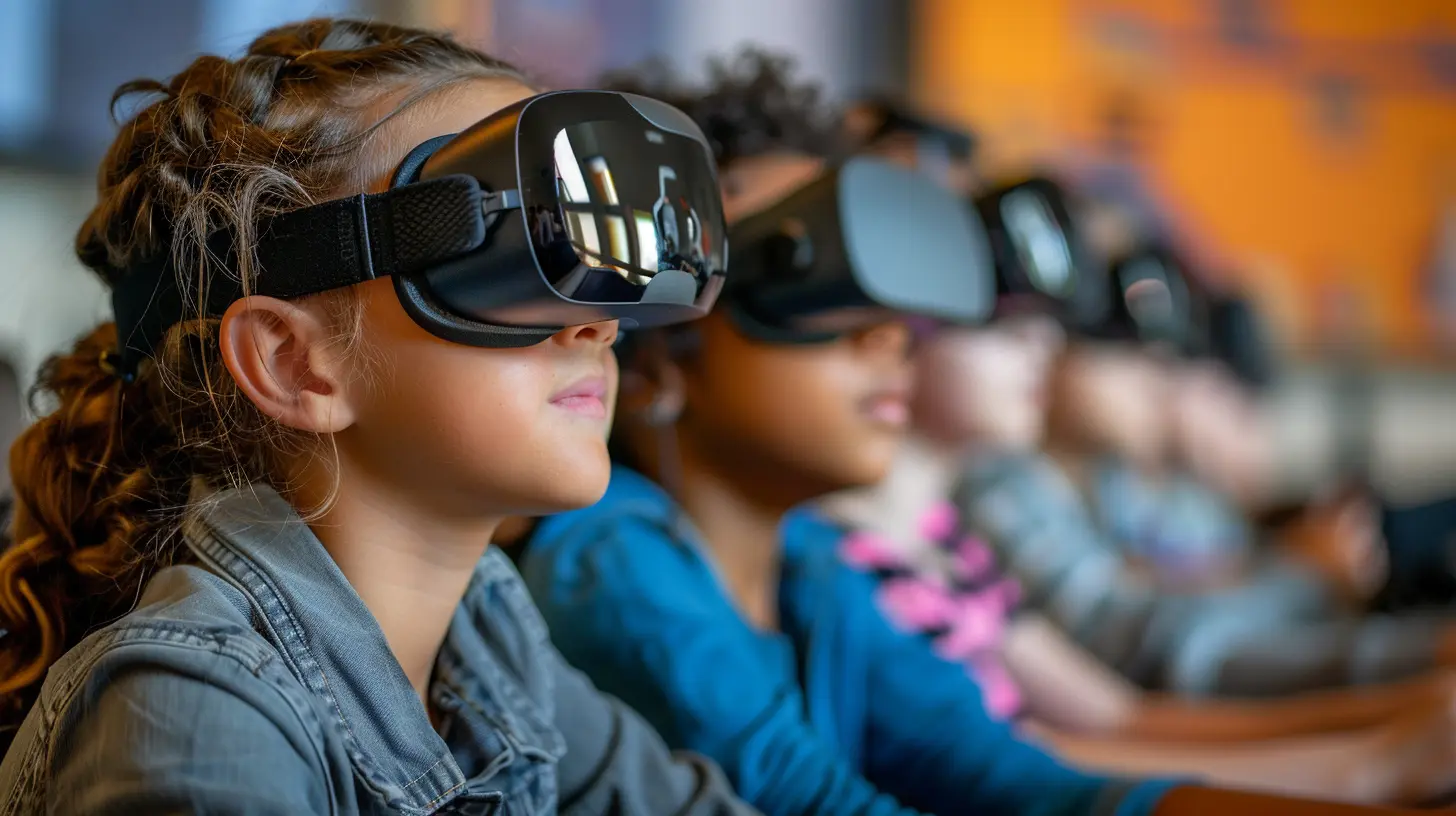
Types of Virtual Labs You Can Utilize
The world of virtual labs is vast and constantly evolving. Here are some popular types of virtual labs that educators can incorporate into their science instruction:1. Simulations
Simulations allow students to engage with virtual representations of complex systems. For example, biology students can use simulations to explore cell division or genetic mutations. These labs often include interactive elements where students can manipulate variables and see how they affect the outcome.2. Virtual Reality (VR) Labs
Some virtual labs go a step further by incorporating virtual reality. Imagine putting on a VR headset and being transported into the bloodstream to watch red and white blood cells in action. VR labs provide an immersive experience that makes learning incredibly engaging and memorable.3. Augmented Reality (AR) Labs
Similar to VR, augmented reality labs blend the real world with digital elements. Students can use AR tools to overlay scientific models or diagrams onto their physical environment. This is especially useful for subjects like anatomy, where students can visualize 3D models of organs or bones right in front of them.4. Open-Source Virtual Labs
Many virtual labs are available for free or at a low cost. Websites such as PhET Interactive Simulations and Labster offer high-quality, open-source virtual labs for various scientific disciplines. These platforms are a great resource for teachers looking to integrate virtual labs into their classrooms without breaking the budget.Overcoming Challenges with Virtual Labs
While virtual labs are fantastic, they aren’t without their challenges. Here are a few common issues educators might face, along with some tips on how to overcome them:1. Technical Difficulties
Not every student will have access to a high-speed internet connection or a powerful computer. To mitigate this, try to choose virtual labs that are lightweight and don’t require significant computing power. Many platforms also offer offline versions or mobile apps.2. Lack of Hands-On Experience
As mentioned earlier, virtual labs shouldn’t replace physical labs entirely. While they provide excellent simulations, students still benefit from physically conducting experiments. Strive for a balance between the two.3. Student Engagement
Some students may initially struggle to engage with virtual labs, especially if they’re more accustomed to hands-on experiences. To combat this, provide clear instructions, and encourage them to explore and experiment. Make it fun—after all, science is all about curiosity!Conclusion
Virtual labs are a powerful tool for teaching science concepts in today’s digital age. They offer accessibility, safety, and unmatched opportunities for visualization and exploration. By integrating virtual labs into your curriculum, you can provide students with a dynamic, interactive, and engaging way to learn science. Whether you’re teaching chemistry, biology, or physics, virtual labs are a fantastic resource that can enhance your students’ understanding and love for science.So, what are you waiting for? Dive into the world of virtual labs and watch your students’ curiosity soar!
all images in this post were generated using AI tools
Category:
Classroom TechnologyAuthor:

Olivia Lewis
Discussion
rate this article
18 comments
Thor McCallum
Great article! Virtual labs really make science engaging and accessible. They’re a fantastic way to bridge theory and practice, making learning both fun and effective!
April 3, 2025 at 12:34 PM

Olivia Lewis
Thank you for your feedback! I'm glad you found the article valuable and agree on the benefits of virtual labs in making science engaging and accessible.
Corin Jackson
Virtual labs provide an innovative and effective way to teach science concepts, offering students hands-on experience in a controlled environment. By simulating real-world scenarios, they enhance understanding, foster engagement, and accommodate diverse learning styles, ultimately improving educational outcomes in science disciplines.
February 25, 2025 at 8:52 PM

Olivia Lewis
Thank you for highlighting the benefits of virtual labs! They truly transform science education by making learning interactive and accessible for all students.
Ella Sheppard
Virtual labs: where ‘Let’s blow it up’ meets ‘Just kidding, it’s all safe!’—the perfect fusion of fun and learning without singed eyebrows!
February 19, 2025 at 8:40 PM

Olivia Lewis
Glad you enjoyed the blend of excitement and safety! Virtual labs truly make learning science both fun and effective!
Blair Middleton
Virtual labs transform science education by bridging theory and practice, enabling students to explore complex concepts in an engaging, safe, and innovative environment.
February 8, 2025 at 8:16 PM

Olivia Lewis
Thank you! Virtual labs truly enhance learning by making abstract concepts tangible and accessible, fostering deeper understanding in a safe and interactive setting.
Maverick Willis
Virtual labs offer an engaging way to teach science concepts, bridging theory and practice. They foster curiosity and hands-on learning in a digital age.
February 8, 2025 at 12:54 PM

Olivia Lewis
Absolutely! Virtual labs enhance student engagement by blending theoretical knowledge with practical application, inspiring curiosity and interactive learning.
Carina Mathews
This article brilliantly highlights the potential of virtual labs in enhancing science education. Embracing technology can transform learning experiences, making complex concepts accessible and engaging for students. Let’s inspire curiosity and innovation in the classroom!
February 7, 2025 at 4:52 AM

Olivia Lewis
Thank you for your thoughtful comment! I'm glad you found the article highlights valuable in promoting curiosity and innovation through virtual labs in science education.
Enid McWilliams
In virtual realms where knowledge thrives, Science dances, curiosity drives. Explore the lab with each click and scroll, Igniting minds, sparking the soul. A world where learning knows no bound— In digital waves, true wisdom is found.
February 5, 2025 at 4:58 AM

Olivia Lewis
Thank you for your poetic reflection! Virtual labs truly harness the power of exploration and ignite curiosity in science education.
Ford Alexander
Unlocking secrets of science in a digital realm.
February 4, 2025 at 11:52 AM

Olivia Lewis
Thank you! Virtual labs truly enhance our understanding of science by providing interactive and accessible experiences.
Olivia McDaniel
This article offers valuable insights into using virtual labs for science education. I appreciate the practical tips and clear explanations, which can truly enhance student engagement and understanding of complex concepts. Thank you!
February 3, 2025 at 7:45 PM

Olivia Lewis
Thank you for your thoughtful feedback! I'm glad you found the insights and tips helpful for enhancing student engagement.
Deborah Thomas
Virtual labs offer immersive, hands-on experiences that enhance student engagement and understanding of complex scientific concepts. By simulating real-world experiments, they bridge theoretical knowledge with practical application, fostering critical thinking and collaboration in a safe, accessible learning environment.
February 2, 2025 at 7:34 PM

Olivia Lewis
Thank you for highlighting the benefits of virtual labs! They indeed play a crucial role in making science more interactive and accessible for students.
Uriel Warren
Virtual labs transcend traditional boundaries, offering students immersive experiences that ignite curiosity and foster critical thinking. By integrating technology with pedagogy, we empower learners to explore scientific concepts hands-on, bridging theory and practice in a dynamic environment that nurtures innovation and understanding.
February 2, 2025 at 12:03 PM

Olivia Lewis
Thank you for your insightful comment! I'm glad you share the view that virtual labs enhance learning by merging technology with hands-on experiences, ultimately fostering curiosity and innovation in science education.
Justice Whitaker
Virtual labs provide an innovative and engaging way to teach science concepts by simulating real-world experiments. They enhance students' understanding through interactive learning experiences, allowing for experimentation without the constraints of physical lab environments, ultimately fostering a deeper grasp of scientific principles.
February 2, 2025 at 4:02 AM

Olivia Lewis
Thank you for your insightful comment! I completely agree—virtual labs indeed transform science education by making it more interactive and accessible for students.
Monique Rios
Great article! Virtual labs are such a fun and innovative way to spark curiosity in science. They make complex concepts accessible and engaging. Embrace the adventure of learning—your students will love exploring the wonders of science! Keep inspiring!
February 1, 2025 at 2:04 PM

Olivia Lewis
Thank you! I’m glad you enjoyed it and see the value in virtual labs for igniting curiosity in science. Your support means a lot!
Kenneth Peterson
Virtual labs offer an innovative approach to teaching science by providing interactive, hands-on experiences that enhance student engagement and understanding. They allow for safe experimentation and exploration, bridging the gap between theoretical concepts and practical applications in a digital environment.
February 1, 2025 at 3:56 AM

Olivia Lewis
Thank you for your insightful comment! I completely agree—virtual labs are a game-changer in enhancing student engagement and bridging theory with practical application.
Kalani Summers
Explore, experiment, and enjoy learning!
January 31, 2025 at 11:40 AM

Olivia Lewis
Thank you! Embracing exploration and experimentation is key to making science engaging and effective in virtual labs.
Runevale Hodge
Embrace virtual labs as transformative tools that empower students to explore, experiment, and ignite their passion for science in innovative ways!
January 28, 2025 at 11:58 AM

Olivia Lewis
Absolutely! Virtual labs open up new avenues for hands-on experimentation, fostering creativity and deepening students' understanding of scientific concepts.
Lysander Potter
Great article! Virtual labs are a fantastic way to enhance science learning. Consider incorporating interactive simulations and real-time data analysis to further engage students. Also, providing guided questions can help deepen their understanding and encourage critical thinking during experiments.
January 27, 2025 at 8:13 PM

Olivia Lewis
Thank you for your insightful suggestions! Incorporating interactive simulations and guided questions can indeed enhance student engagement and critical thinking in virtual labs. We appreciate your feedback!
Hadley McNulty
Great article! Virtual labs provide interactive experiences that can enhance student engagement and understanding. Incorporating them into lessons can truly transform science education for all learners.
January 27, 2025 at 1:08 PM

Olivia Lewis
Thank you! I'm glad you found the article helpful. Virtual labs indeed offer exciting opportunities to enhance learning in science education!
MORE POSTS

How to Integrate the Internet of Things (IoT) in STEM Lessons

The Connection Between Learning Styles and Student Motivation
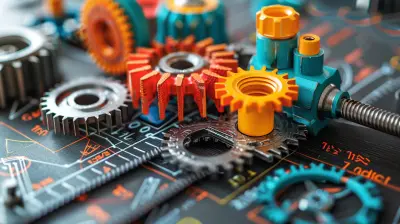
Developing Problem-Solving Skills Through Applied Mathematics

How to Use Learning Objectives to Create Effective Digital Learning Resources

How to Encourage Student Participation in Individual Sports

How to Set Realistic and Achievable Learning Objectives for Students

How EdTech Startups Are Shaping the Future of Education

The Relationship Between Learning Objectives and Student Feedback
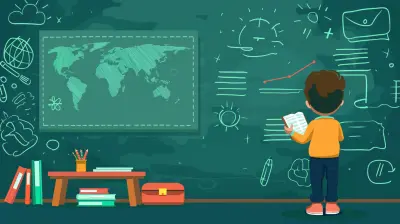
The Benefits of Teaching What You Learn to Others

How to Incorporate Mental Health Breaks in Physical Education
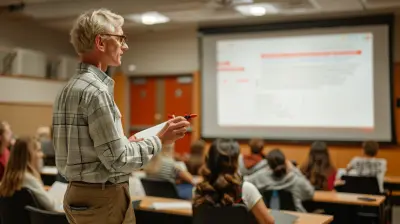
Best Practices for Engaging Students in Large Lecture Settings